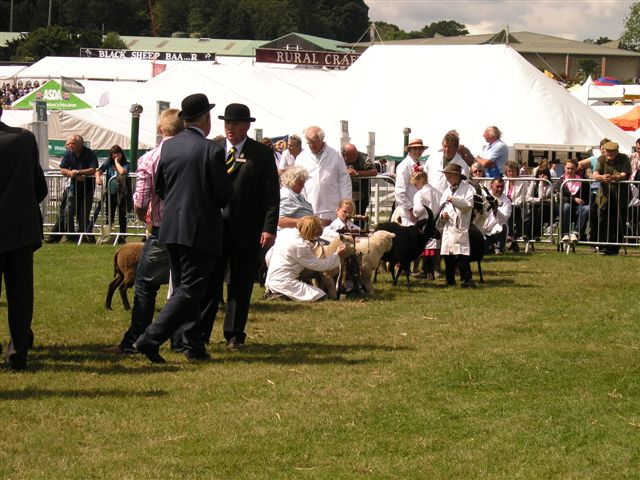For the July Dalesman, I was fortunate to be invited to the home of Sir Ken Morrison, to talk about his forthcoming Presidency of the Great Yorkshire Show.
Ken is well known for developing the supermarket chain, and despite being now retired, still takes a keen interest in food, and has begun farming.
He thought carefully about his lifetime’s work in the food industry, and spoke of growing up in Bradford during the War: “I’m a child of the war. We didn’t have aspirations: we didn’t expect much, and we didn’t get much. It was about survival.”
“Now, I’ve a lad of 9, and I’ve been to his school to talk about rationing and war time. If I take in a week’s ration now, they’re astonished – you couldn’t make a decent bacon sandwich with it.”
“As a kid, we didn’t get toys – they didn’t make any. There were no footballs, or tennis balls, so they were prized possessions. If you had a tennis ball and lost it, you’d spend hours looking for it.”
But, he said, “I think people came out stronger than when they went in, unless they were affected by direct consequences of the war.”
As a boy, Ken said, “My Father’s business was in the market in Bradford. He said I should have a better job than he had – as all parents at the time did. So I went to Bradford Grammar School until I was 18, then did National Service. While I was away, my Father became ill.”
Therefore, Ken had to take over the business at a young age. Fortunately, said Ken, “I’d learned a lot as a child, because Father’s warehouse was at the back of our house. As a six or seven year old, I took an interest, and ‘helped’. Probably I got in the way more than I helped, but I learned a lot – you couldn’t do that with a kid nowadays.”
“I was demobbed in 1952, just as rationing ended. Despite this, everything was still austere, because we’d spent so much on the War. I was astonished that I could get things in Germany and Belgium that you couldn’t get here. I used to send my sisters nylon stockings. However, it was all a good lesson, and a time of opportunity.”
Nowadays, as a farmer, and a patriot, he wants to see British farming do well. His controversial view that not all imports are bad is due mainly to conditions that are outside human control: the weather. Sunnier countries can grow tender crops without the use of expensive artificial heat, and the southern hemisphere can produce fresh fruit in our winter.
But there are things that grow well in Britain, grass being one of them. Ken would like to see British farming thrive by playing to its strengths, and said, “The public and politicians are beginning to have concerns over sustainability of supply. I think we’re going to see a continuation of larger farming units, as being better able to compete in the field. They get economies of scale, efficiencies of capital, and improved production methods.”
“We’ve also seen a tremendous increase in the use of contractors, where farmers don’t own equipment themselves, but hire services.”
He is optimistic, and said, “We’ve got a lot of bright young people going into farming.”
He’s also a fan of home cooking, and said, “My Mother was a tremendous old-fashioned cook – she never used recipe books. She said she could make a meal out of a dishcloth if she had to.”
Fortunately, Ken never had to eat a dishcloth, but said, “There’s now a great lack of Domestic Science being taught in schools. I’d teach understanding of food – how to buy, how to cook, how to present. But I’d broaden it to embrace how to run a house too – for boys as well as girls. Otherwise, you’re just opening packets.”
His passion for good quality produce shone through when he said, “And there’s no point in selling ingredients to people who don’t know what to do with them – that’s the problem. I don’t find a great knowledge of meat amongst young people. That’s why domestic science is important: to get the best out of a piece of meat, you need to know what to do with it.”
He also commented about the ‘perfect’ fruit and veg in supermarkets. He said: “A lot of that is due to Europe. It’s so closely graded, so if it’s not all the same shape and colour, it doesn’t get graded. They’ve tended to concentrate on appearance, and forget about flavour. But now flavour’s coming back. With tomatoes, for instance, they’ve got new varieties that are full of flavour.”
It was a pleasure to meet Ken, with his optimism for the future, and his enthusiasm for gardening. He thinks this is a good thing for everyone to have a go at, so that they appreciate what farmers and growers do. He said, “Grow it yourself, and you soon find out.”
He hopes for good weather for the Great Yorkshire Show, but said, “We can’t control it, and it wouldn’t be right if we could, as people wouldn’t agree.”
Wise words indeed.

